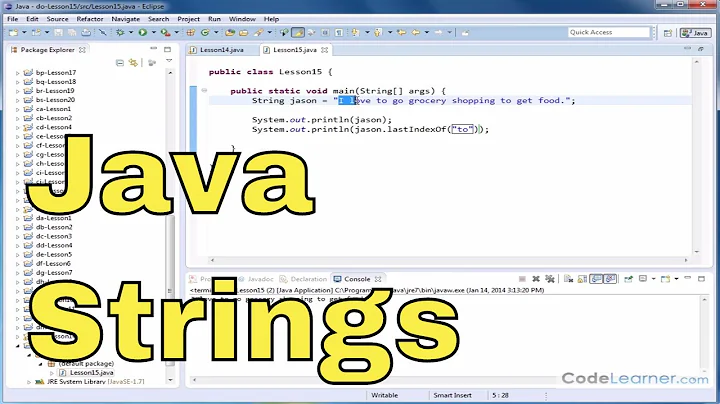how to `.Take()` on a string and get a string at the end?
Solution 1
There's no method built in to System.Linq to do this, but you could write your own extension method fairly easily:
public static class StringExtensions
{
public static string ToSystemString(this IEnumerable<char> source)
{
return new string(source.ToArray());
}
}
Unfortunately, because object.ToString exists on all .NET objects, you would have to give the method a different name so that the compiler will invoke your extension method, not the built-in ToString.
As per your comment below, it's good to question whether this is the right approach. Because String exposes a lot of functionality through its public methods, I would implement this method as an extension on String itself:
/// <summary>
/// Truncates a string to a maximum length.
/// </summary>
/// <param name="value">The string to truncate.</param>
/// <param name="length">The maximum length of the returned string.</param>
/// <returns>The input string, truncated to <paramref name="length"/> characters.</returns>
public static string Truncate(this string value, int length)
{
if (value == null)
throw new ArgumentNullException("value");
return value.Length <= length ? value : value.Substring(0, length);
}
You would use it as follows:
string SomeText = "this is some text in a string";
return SomeText.Truncate(6);
This has the advantage of not creating any temporary arrays/objects when the string is already shorter than the desired length.
Solution 2
Just create string
string res = new string(SomeText.Take(6).ToArray());
Also pay attention to string native methods
string res = SomeText.Substring(0, 6);
Solution 3
I've run into this myself a few times and use the following:
string.Join(string.Empty,yourString.Take(5));
Solution 4
SomeText.Take(6) will returns an IEnumerable of char of char, and ToString method will not return the suspected string you need to call it like the following:
string [] array = SomeText.Take(6).ToArray();
string result = new string(array);
Related videos on Youtube
rtpHarry
WordPress website developer professionally Ionic Framework developer in training asp.net web developer in a past life
Updated on July 09, 2022Comments
-
rtpHarry almost 2 years
LINQ to Objects supports queries on string objects but when I use code such as below:
string SomeText = "this is some text in a string"; return SomeText.Take(6).ToString();All I get is:
System.Linq.Enumerable+<TakeIterator>d__3a`1[System.Char]This is discussed as an "accident" in this question but this is what I am actually trying to do and I cannot find it through search anywhere.
I know there are other ways to manipulate strings but then I also know you can do some really cool tricks with LINQ and I just would like to know if there is a way to trim a string to a certain length with LINQ?
-
rtpHarry almost 13 yearsThanks. And this is an "ok" way to do things? Its part of a larger system where I am passing around a StringBuilder and
.Append()ing a lot of data to generate a file. I know I shouldn't prematurely optimize but is using LINQ in the way you are suggesting wasting a lot of cpu/memory when there is a simpler way to do this? Put simply: Would you use this code to trim a string to a certain length in your own project? -
Bradley Grainger almost 13 years@rtpHarry Good question; I personally wouldn't use LINQ to accomplish this, and have updated my answer with the approach I would choose.
-
Bradley Grainger almost 13 yearsSubstring will throw if
SomeTextis shorter than six characters; I assumed that the OP wanted a method that behaved likeTake(i.e., returns at most that many characters, but fewer (with no exception) if the input string is shorter). -
rtpHarry almost 13 yearsThanks for your additional feedback, I will update my code based on this :)














